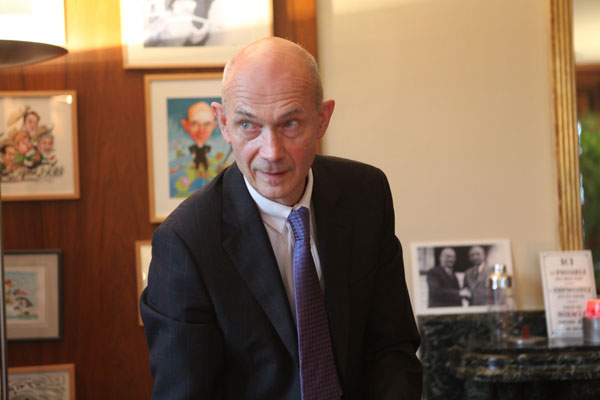Lack of focus hampers crisis fight
Updated: 2011-11-29 06:51
By Fu Jing (China Daily)
|
|||||||||
 |
|
Pascal Lamy is director-general of the World Trade Organization. |
GENEVA - Distracted by their own domestic concerns, global leaders do not have the energy to fully concentrate on world economic problems, said the chief of the World Trade Organization (WTO).
"Frankly, things do not look good," said Pascal Lamy, WTO director-general, in an exclusive interview with China Daily.
"The capacity of global leaders to address the problem is too weak."
Because of that, Lamy said, the unfolding wave of global economic crises will be less violent but more durable compared to the last major crisis in 2008-09.
The stubbornness of the crises has weakened the authority and legitimacy that leaders require to bring about global solutions.
"You have to compromise. This is for the moment a vicious circle. Their capacity to drive globally is weakening," said Lamy.
He said the political leaders have to focus more on where they are accountable, which is their domestic affairs. "There is no global accountability, no global voter. As a result of that, the energy which is available in the international system to compromise and converge is not 100 percent of what I want, only 70 percent," said Lamy.
Speaking prior to a celebration marking China's 10th anniversary of its entry into the WTO, Lamy said the outlook for the global economy has worsened considerably in recent months, especially amid the European sovereignty debt crisis.
But for Lamy, the world has seen two crises: an economic crisis and a crisis in global leadership.
"If you have both, it is worse. These two things, unfortunately, synchronize each other," Lamy said.
Since last May when the European debt crisis erupted, the European Council and euro group leaders have met seven times but so far have failed to come up with solutions.
Sovereignty credits and bonds have been downgraded recently in Hungary, Portugal and Belgium, while the situation has been going from bad to worse in Greece and Italy despite changes in government.
According to a WTO report unveiled last week, world trade has grown more slowly than expected in recent months because developed economies have been hit by shrinking global demand, the impact of natural disasters, cuts in national budgets, credit conditions and the sovereign debt crisis.
Trade growth in developing countries has also been adversely affected by global developments, including signs of overheating in some major emerging markets.
"So I think the global growth will be moving downside. And compared to six months ago, the world economic outlook has been deteriorating," said Lamy.
Lamy said the United States, Europe and Japan - which have contributed to 50 percent of global growth - need to make the necessary fiscal adjustments and debt reductions without slowing their economy too much as any downside will affect the economies of developing and emerging countries.
The WTO's forecast for world export growth in 2011 was revised to 5.8 percent, down from the earlier estimate of 6.5 percent. And developed economies' exports are expected to rise by 3.7 percent and those from developing countries by 8.5 percent.
Lamy said the worsening world economic situation has also negatively affected international affairs, not only within the trade regime and negotiation, but also climate change, macroeconomic coordination and currency issues.
Lamy will head for Beijing to attend a ceremony on Dec 10 to mark a decade of Chinese membership in the WTO, which he believed is a "success story" with a lot of turbulence.











